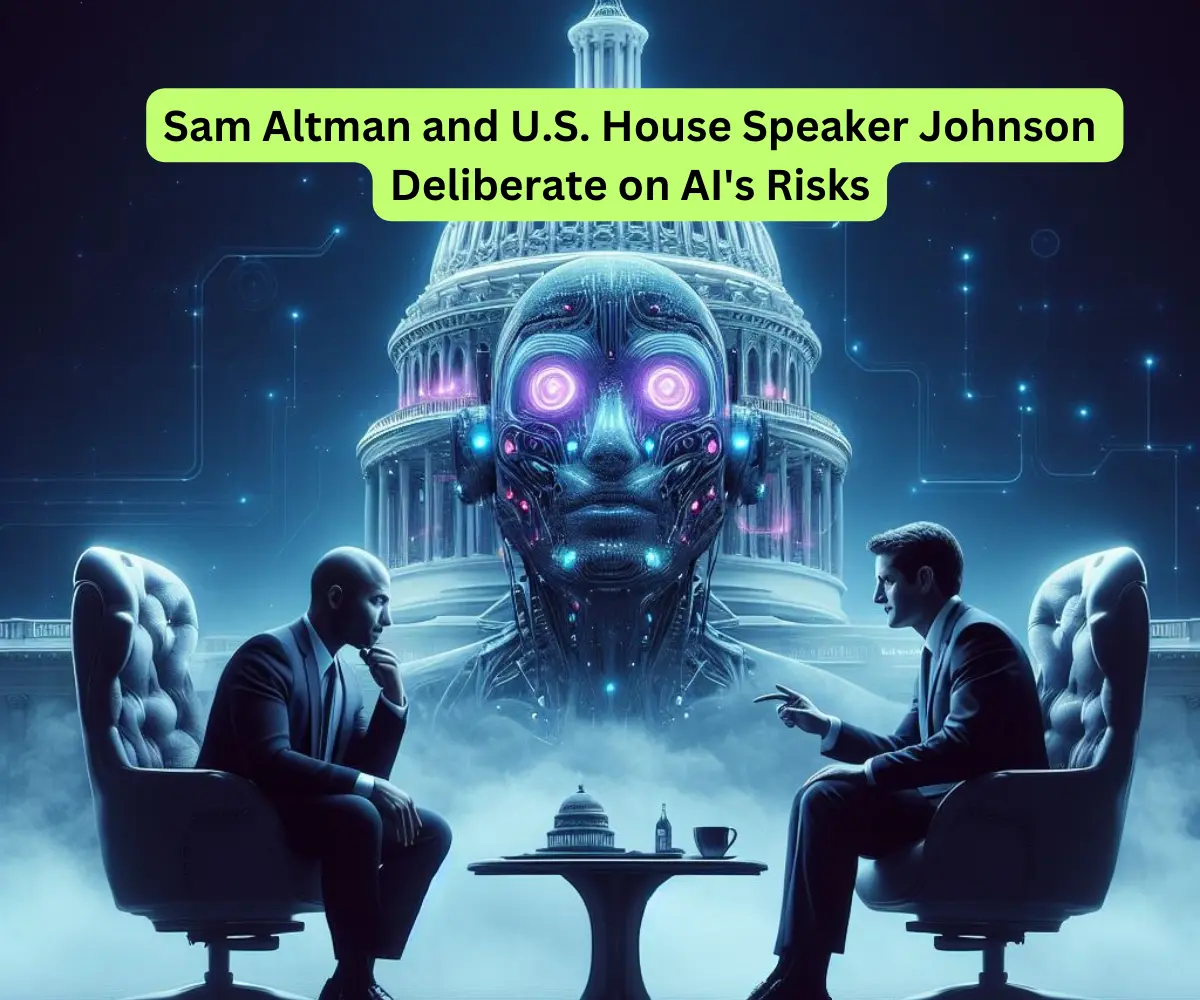In a significant meeting on Capitol Hill, OpenAI CEO Sam Altman engaged in discussions with U.S. House Speaker Mike Johnson, delving into the risks associated with artificial intelligence (AI). This encounter sheds light on the ongoing debate surrounding AI regulation in the United States and the challenges faced in achieving bipartisan consensus.
The Context of AI Regulation
As the Biden administration pushes for AI regulation, the deeply divided U.S. Congress, with Republicans holding control in the House and Democrats in the Senate, struggles to make substantial progress in this domain. The concerns surrounding AI’s impact on democratic processes, potential for fraud, and its role in job displacement have fueled the urgency for effective regulations. Notably, Europe has taken the lead in drafting AI rules, emphasizing the need for a comprehensive approach to mitigate potential harms.
Key Meeting Highlights
The meeting between Altman and Speaker Johnson on Thursday aimed to address both the promises and risks associated with AI and emerging technologies. Johnson’s office issued a statement affirming the Speaker’s belief in fostering innovation, maintaining a competitive edge, and simultaneously being vigilant about potential risks. Altman, in his remarks to reporters, expressed enthusiasm about finding a balance between AI’s vast potential and the imperative to minimize associated risks. He looks forward to witnessing the outcomes of the legislative process in navigating this delicate equilibrium.
OpenAI’s Evolution and Leadership Transition
OpenAI, initially established as an open-source nonprofit, underwent a pivotal shift in 2019 when co-founder Altman transitioned it into a capped-profit structure. Microsoft’s backing and Altman’s subsequent appointment as CEO marked a significant phase in OpenAI’s trajectory. However, the unexpected ousting of Altman in November 2023, followed by his swift reinstatement with the promise of a new board, triggered concerns among investors and employees. Altman’s insights into the risks of AI, as discussed with Speaker Johnson, are crucial against this backdrop of leadership changes and organizational restructuring.
Current Regulatory Landscape and Executive Order
In October, President Biden signed an executive order mandating developers of AI systems with potential risks to national security, the economy, and public safety to share safety test results with the federal government. This executive order surpasses voluntary commitments made by AI companies earlier in the year. The move underscores the government’s proactive stance in addressing the multifaceted challenges posed by AI technologies.
Looking Ahead: The Promise and Challenge of AI
Altman’s engagement with Speaker Johnson exemplifies the intricate dialogue surrounding AI, innovation, and regulation. The need to strike a delicate balance between encouraging technological advancements and safeguarding against potential risks resonates in their discussions. As the U.S. grapples with the complexities of AI regulation, the collaborative efforts of policymakers, industry leaders, and the broader public are essential to charting a responsible and effective course for the future.
Frequently Asked Questions
Why is there a need for AI regulation in the United States?
The Biden administration has been advocating for AI regulation due to concerns about its potential misuse, including disruptions to democratic processes, increased fraudulent activities, and job losses. The need for comprehensive regulations is further emphasized by the already implemented rules in Europe.
What were the key points discussed in the meeting between Sam Altman and Speaker Mike Johnson?
The meeting focused on addressing both the promises and risks associated with AI and emerging technologies. Speaker Johnson emphasized the importance of fostering innovation while remaining vigilant about potential risks, and Altman expressed enthusiasm about finding a balance between AI’s potential and mitigating associated risks.
How has OpenAI evolved, and what recent leadership changes have occurred?
Originally established as an open-source nonprofit, OpenAI underwent a significant transformation in 2019 when co-founder Sam Altman transitioned it into a capped-profit structure. The unexpected ousting and subsequent reinstatement of Altman in November 2023 added a layer of complexity to OpenAI’s organizational dynamics.
Final Thoughts
The intersection of AI, regulation, and innovation is a complex landscape that requires thoughtful collaboration between industry leaders and policymakers. The meeting between Sam Altman and Speaker Mike Johnson reflects the ongoing efforts to navigate this intricate terrain, acknowledging the promises and risks associated with AI. As the United States grapples with the imperative for effective regulation, it is crucial to strike a balance that fosters technological advancements while safeguarding against potential societal and economic risks. The dialogue initiated in this meeting contributes to the ongoing discourse, marking a step forward in shaping a responsible and forward-looking approach to AI governance.

Bernie Grady is a technology and business journalist who writes about trending topics in the world of technology, entertainment, and business. She has a keen eye for spotting new trends and loves to share her insights with her readers. Bernie has been writing professionally for over 10 years and has experience covering a wide range of topics. When she’s not writing, she enjoys spending time with her family and friends.

